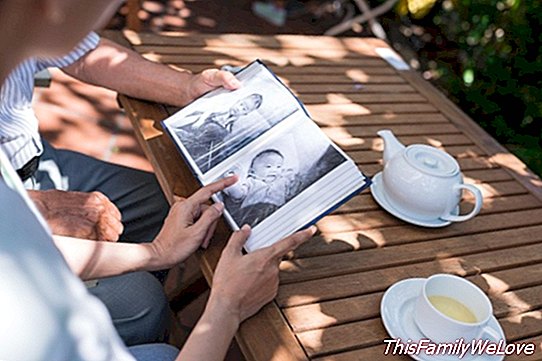Memories of childhood: what do we remember when we were little?

When we become adults and we want to make an effort to remember the things that happened to us when we were children, we realize that we have many gaps. Before a certain age, for the majority it is almost impossible to remember anything and it is from the age of five when we begin to have memory of childhood of some things.
Before six years, children are not fully able to differentiate between imagination and what has been lived, since both are confused as tangible facts. For this same reason, nightmares and night dreams have such a negative connotation and are not easy to discard.
To dream that there is a spider in the room, that bad men come for you, etc., for a child means a real threat, regardless of how absurd it may seem to a rational adult.
But, why is there this fuzzy line between fantasy and reality? What are the consequences? Human memory develops and evolves with age. Each stage of life involves its neurological changes with direct effects on how events are encoded and remembered.
The basic memory of the first years of children
During the first two years of life, the memories are very basic. They are reduced to a minimum of conditioning and emotional learning. In this age it can be said that the memory is saved in a cassette format. Not only the quality is not very good, but it is limited. On the other hand, in this age you do not have enough vocabulary to understand many concepts, so the memories that are stored are generally of a procedural and non-declarative nature.
After two and a half years, the mnemic system improves and with it the capacity to recover information. It can be said that we now keep memories in CD format. It is then when the first memories are created, when we begin to form the first memories that will remain with us all our lives. Before this age, everything we have been able to learn can not be remembered in a declarative way. We have already begun to expand our vocabulary and with it the amount of information that we are able to store. While our memory has improved, it is not yet the most sophisticated. Like a CD, at this age memory is suggestible, easy to corrupt and to be altered.
At 6 years, memory goes to a higher level
It is not until approximately six years old when memory takes a qualitative leap and reaches a level of sophistication where both storage and memory recovery follow a higher level structure. From this age, the mnemic system does not improve its quality, but its quantity. With each new piece of information we learn we are expanding our knowledge of the world. This new format, comparable to mp3, does not improve, it only expands its selection.
Because after almost three years Y before six, Memories have just begun to be codified in terms of concepts and language - as well as in a declarative and conscious way - they are not the strongest. For the first time, children begin to vividly remember events and their consequences, even if they are not always aware of whether they are real or not. It is for this reason that a child in this age group can say something that in an older child or adult would be considered a lie, but do not do so premeditated or with intent to cheat.
Maite Balda Azpiazu. Psychologist and Master in Cognitive Neurosciences




